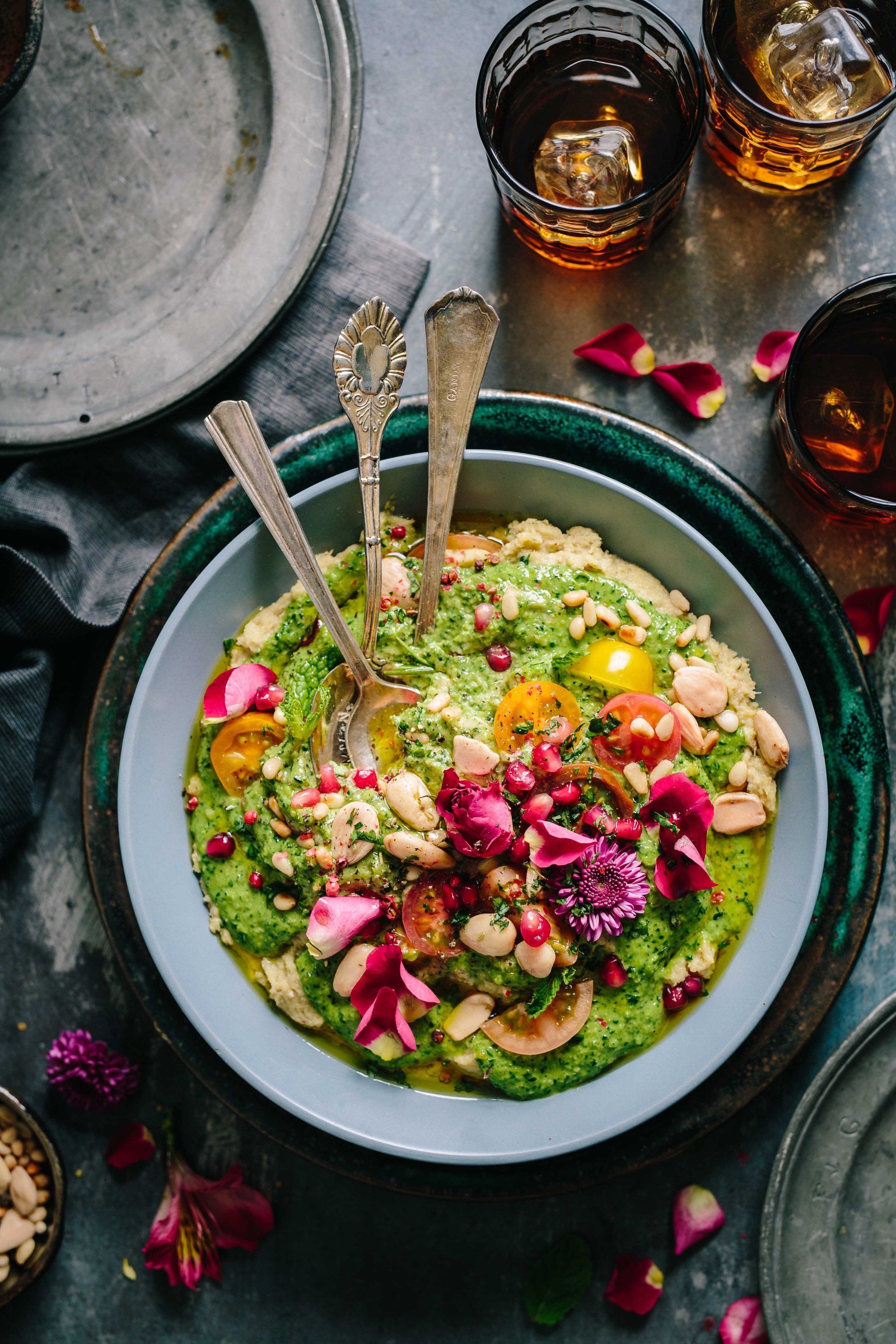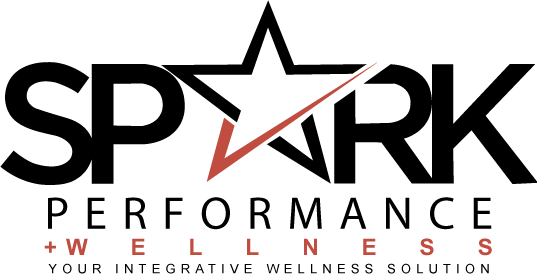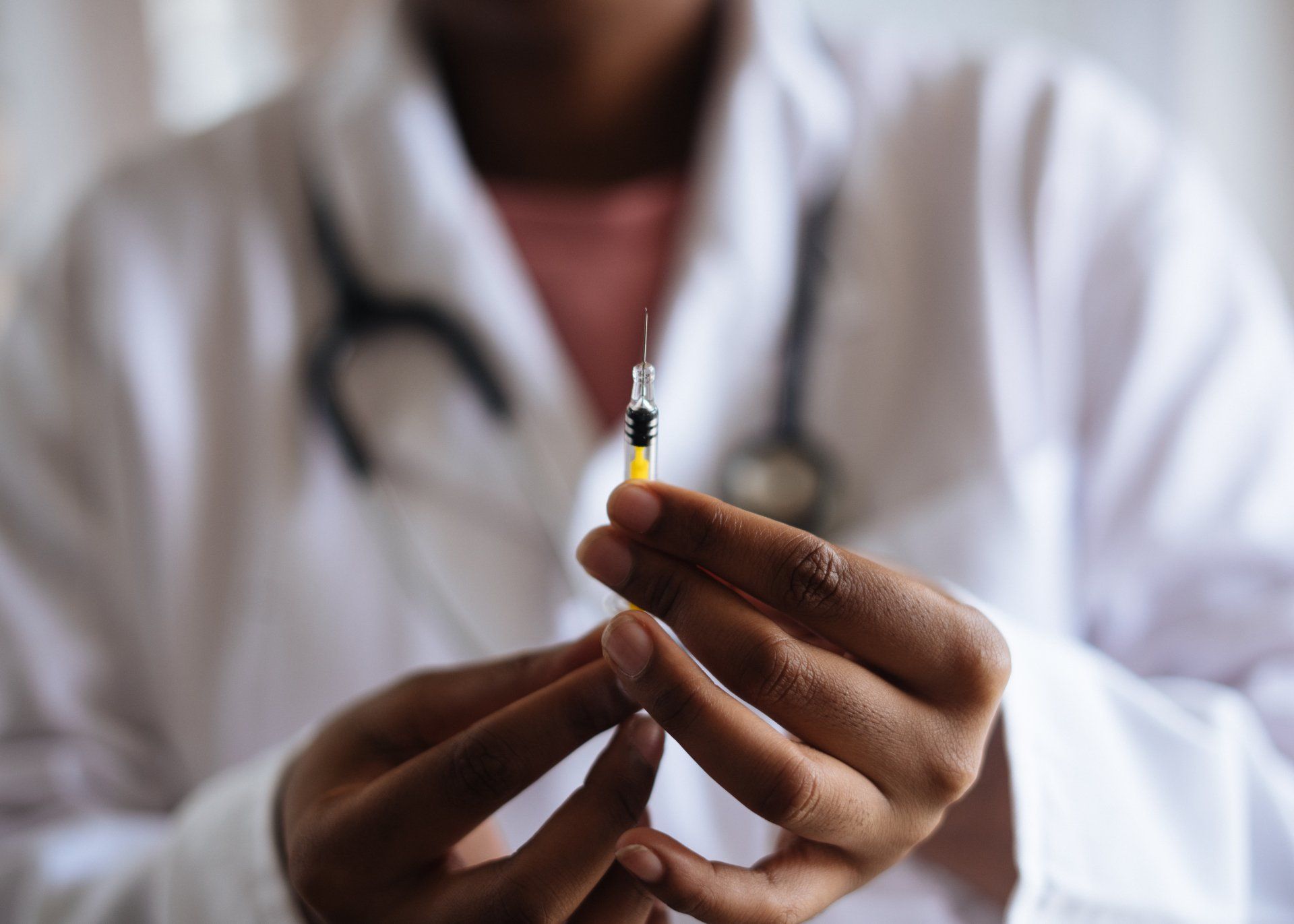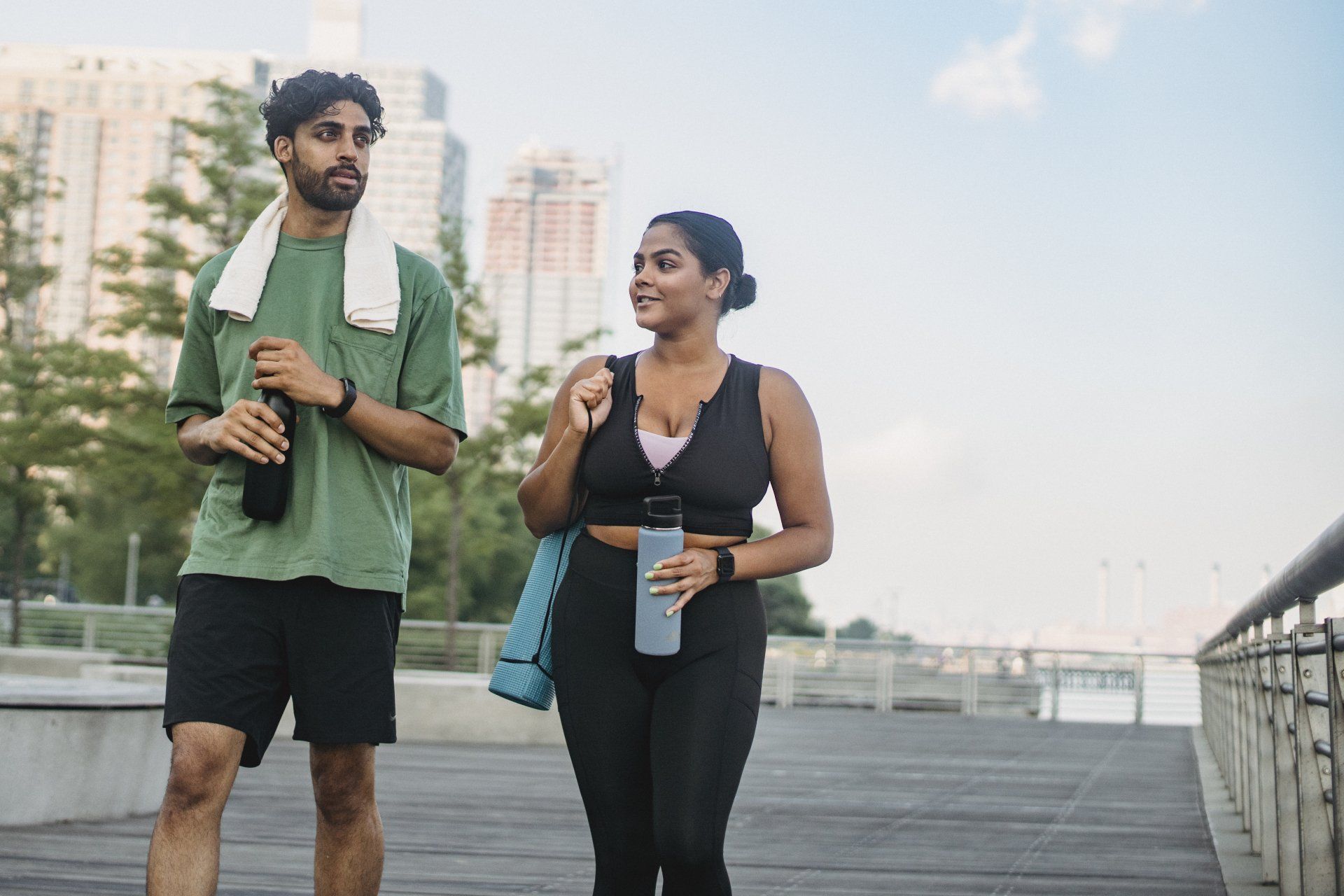Get in touch
404-836-0856
thehippiedoc@gmail.com
Prevention and education are the best medicines
The Wellness Corner

By Sydne Ford-Norton, MD
•
18 Feb, 2024
Your gut is a complex ecosystem that can make or break your health. The trillions of microbes that live in your digestive system influence everything from weight gain to m ental health. So, let’s look at how the microbiome affects our overall well-being and helps us lose weight.

By Dr. Sydne Ford
•
10 Aug, 2022
Student athletes and parents are all too familiar with the yearly requirement to obtain a Sports Physical. They rush to meet the deadline to get this paper signed so that they are clear to play their preferred sport(s) for the upcoming season. The Sports Physical or Pre-participation Physical Examination (PPE) is meant to provide reassurance to the athletes, parents, and coaches that it is safe for the athlete to participate in a particular sport. Year after year, however, athletes suffer from non-contact injuries or worse, season-ending injuries. Why does this happen and what can be done about it?

By Dr. Sydne Ford
•
01 Aug, 2022
Whether you're an athlete or an active individual participating in various forms of exercise, taking steps to prevent and reduce your risk of injuries is crucial to ensure you always perform your best. Most importantly however, is understanding that the body is dynamic. We are constantly moving and constantly asking our muscles to work. Even while we are sleep, our muscles are working. When we are physically active, we are putting even more strain on the body. Taking care of our bodies is like keeping our cars well maintained. It is important to do certain things just for upkeep, before problems arise.

By Dr. Sydne Ford
•
14 Jun, 2020
Many of my patients complain that choosing their next meal causes them to have anxiety – and with how diet trends come and go, it's no wonder. If you can relate or believe that the only suitable thing to eat is air, I want you to know you are not alone. The good news is that it does not have to be this hard. Eating is a natural, intuitive process that we have been doing since the beginning of time. Unfortunately, nutrition science has made eating very complicated with conflicting studies that seem to come out on a regular basis. Ready to simplify your diet? Check out these three tips: 1. “Eat [real] food, mostly plants, not too much” —A quote from my favorite author, Michael Pollan This takes out the guesswork and removes the yo-yo dieting from your life. The goal here, is to focus on eating a balanced diet, rich in whole foods, and to avoid processed foods (you know, the foods that come in boxes and bags with ingredients that we cannot pronounce). 2. Reduce your sugar intake I know we hate to hear it. But if we’re honest with ourselves, sugar gives us temporary pleasure and long-lasting negative health effects. It leads to chronic inflammation which can cause pain, sleep disturbances, and hormonal issues. It also increases our risk of developing diabetes, high blood pressure, heart disease, stroke, and some cancers. 3. Practice mindful eating Eat when you are hungry and stop when you are full. Sounds like common sense? It’s harder than you think. To do this, you must get back in tune with your bodily cues. Our bodies give us signals that we are hungry that are sometimes confused for thirst, emotional changes, or boredom. In the same token, our body sends signals that we are full but we often ignore it because we are distracted or the food is too good to stop. This leads to overeating. Pay attention to how you feel before, during, and after eating and before you know it, you’ll be a pro at mindful eating. Try to start implementing these tips today. Remember, if we keep it simple and go back to the basics , we can still enjoy our food without all the complications of keeping up with the next fad diet. This piece was originally published on www.graceandgrind.co on 6/1/2020

By Dr. Sydne Ford
•
24 May, 2020
I like to live a life of caution and preparation, not fear, as living in fear leads to anxiety. Our immune systems were designed to fight but we have to play our part and give it the right tools. As with all viruses, the best way to prevent illness is to avoid exposure. Also with all viruses, preventing exposure is not completely within our control. In addition to following the CDC’s guidelines , here are some suggestions on what you can do: 1. Don’t Forget to Wash Your Hands I’m glad that people learned how to wash their hands and sanitize when Ms. Rona hit. Let’s keep it up and maintain those good hygiene practices! It is best to wash your hands with soap and water for at least 20 seconds. If soap and water are not available, use hand sanitizer. Avoid touching your face, if you have not recently washed your hands. Always wash your hands or sanitize after you’ve been out in public. Yes, I know this is a CDC recommendation, but it’s the most important one! 2. Eat Anti-inflammatory Foods Can you recall the lovely aromas that fill your nostrils as soon as you walk into an Indian restaurant? You know, the ginger, the garlic, and the turmeric? Yes there are other yummy powerhouses such as cardamom, fennel, and others but this isn’t about them (although they are anti-inflammatory as well). Anti-inflammatory foods are known to support your immune system. Ginger, turmeric, and garlic are easily found at any grocery store, are extremely versatile, and are easy to cook with. They can also be thrown into smoothies and fresh juices! Studies show that these foods can help reduce your risk of getting sick and reduce the duration of symptoms if you happen to get sick. When I’m ill, I love to make golden milk or tea using fresh ginger and turmeric roots with raw honey. 3. Eat Your Vitamin C Among numerous other benefits, Vitamin C plays an important role in the immune system. We don’t produce Vitamin C so we want to make sure we get enough through our diet. Vitamin C-rich foods include dark leafy greens, sweet potatoes, peppers, broccoli, Brussels sprouts, tomatoes, kiwis, lemons, squash, and so many more foods! This is one reason why I’m an advocate for eating 7-9 servings of fruits and vegetables a day and eating all of the colors of the rainbow! Studies show that taking Vitamin C supplements may help with reducing the duration and severity of symptoms however do not support its use for preventing illness. In order to reduce symptoms, however, you have to have been taking the Vitamin C before getting sick. The amount of Vitamin C studied is typically 1-2 grams per day. 4. What About Vitamin D? Vitamin D is the wonder vitamin that we now consider a hormone, as more and more benefits and mechanisms of action have been discovered. In addition to its role in bone health, it is important for proper immune function. Vitamin D is mostly made through sun exposure via UVB light. This is the same light that is blocked by sunscreen to prevent burns and sun damage. There have been theories that widespread sunscreen use has contributed to us seeing more people with Vitamin D deficiency in America. This has not, however, been proven in studies. Continue to wear your sunscreen (Dermatologists recommend at least SPF 30) while getting regular sun exposure, aiming for 10-30 minutes of midday sunlight several times a week. Most Americans do not get enough sunlight in the winter months to make vitamin D. Also, if you have darker skin, are over the age of 65, or are overweight, you are at risk of a deficiency. Even with fun in the sun, some people need to take a supplement, depending on individual levels. The US Institute of Medicine (IOM) recommends a daily intake of 400-800 IU. If you are at risk of deficiency, however, higher doses are recommended. If you haven’t had your levels checked and do not have a prescription from a PCP, be aware that the safe upper limit, according to IOM, is 4,000IU per day to reach or maintain optimal levels. Because Vitamin D is fat-soluble, it is best absorbed when taken with a meal or snack with (healthy) fats. 5. Reduce stress I know things have been feeling chaotic for the past 3 months. Emotions are high, especially as we get different news every week from the government, the CDC, schools, and our employers. #selfcare has become a hashtag because of how important it is. It’s not a silly cliche. In addition to chronic stress contributing to chronic diseases, it also reduces our ability to fight infection. Be sure to take time out for yourself to manage your stress levels. My favorite ways include exercise, cooking, meditation, deep breathing, reading, talking to loved ones, diffusing essential oils, or creative outlets (e.g. writing or drawing) 6. Sleep for Your Health Sleep deprivation can decrease the production of our protective cytokines (cells of the immune system), which are needed to fight infection. Studies show that you may have a decreased immune response to vaccines with lack of sleep, you may be more prone to getting the common cold caused by viruses, and it’s also harder to recover if/when you do get sick with a virus or bacteria. Right now (and even when COVID-19 is no longer at the forefront of our minds), we should be focusing on getting the recommended 7-9 hours of sleep every night. 7. Avoid sugar Hear (or read) me when I say, avoiding sugar includes the sugary foods that you know are not good for you such as cookies, cakes, pies, pop (hey, I’m from Detroit), chips, etc. But, it also includes the foods that you may not have been aware of, such as white rice, white bread, pastas, and store-bought juice. Eating these foods cause an immediate increase in your blood sugar which can cause a temporary decrease in your immune function. When these foods are a regular part of your diet, however, it is associated with chronic diseases such as Type 2 Diabetes and heart disease. These are two diseases that lead to a weakened immune system, as you have likely heard by now, given recent discussions during the COVID-19 pandemic. All sugars, however, are not off-limits. Fruits, legumes, and starchy vegetables with natural sugars have many nutrients that will help your immune system and do not fall under this category. 8. Limit alcohol When the stay at home orders began, I suggested a Zoom wine party to my friend. Because why not? We couldn’t go out, we wanted to stay social with friends…sounded like a good time, right? I watched on social media how this became a regular thing for people. No harm, no foul. People are at home, their kids are at home driving them crazy all day. We deserved a glass of wine. Did you notice that the liquor stores were considered essential and allowed to stay open? There has actually been an increase in alcohol sales since the pandemic began. If you’re drinking safely and within moderation (i.e. one drink for women, two drinks for men), there’s no judgment here. Please be aware, however, that alcohol can suppress the immune system by damaging immune cells, triggering inflammation, causes dehydration, and poor sleep. I’ve switched out my wine for La Croix and fresh juices. 9. Get some exercise Physical activity helps to build a strong immune system. I mean, what isn’t exercise good for? I don’t think you need one more reason to do it, just do it. The CDC recommends at least 150 minutes of moderate-intensity aerobic exercise each week in addition to 2 strength training days. Since time is short, I like to recommend 30 minutes of exercise each day. 10. Always Always Give thanks to the Most High and your body. Your body does a lot for you throughout the day. It is your temple. Treat it well. Some of us have already stepped out. Some of us are taking baby steps. Whatever you do, please stay safe. If you thought this was helpful, please share it with your friends or comment below! References: https://pubmed.ncbi.nlm.nih.gov/22280901/ https://www.ncbi.nlm.nih.gov/pmc/articles/PMC5486105/ https://pubmed.ncbi.nlm.nih.gov/23440782/ https://pubmed.ncbi.nlm.nih.gov/21527855/ https://www.apa.org/research/action/immune https://pubmed.ncbi.nlm.nih.gov/29727694/ https://news.usc.edu/168549/covid-19-alcohol-sales-abuse-stress-relapse-usc-experts/




